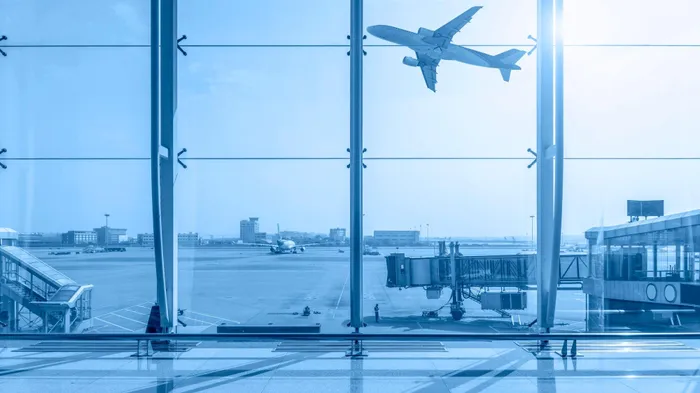
Local companies that cannot be named because of sensitivity of trade manufactures sections of the wing of the Airbus A321 Neo, seats for Airbus, and the aircraft toilet section of the plane.
Image: Freepik
Banele Ginidza
The fortunes of aluminium component manufacturers in South Africa's aviation industry hang on a balance from ripple effects of global supply chain disruptions arising from the US import tariffs.
The integration of the local industry is sturdy enough to take up opportunities arising from the US' as the industry waits on the wings on the 90 day period for the review.
South Africa is a significant contributor to the manufacturing of aircraft with some local companies serving standing orders for manufacturing sections of the Airbus A321 Neo and another exporting popular recreational aircraft.
Analysts over the weekend said South Africa could be affected by the tariff confusion risks delaying shipments, even if the industry has not been directly targeted for duties.
Local companies that cannot be named because of sensitivity of trade manufactures sections of the wing of the Airbus A321 Neo, seats for Airbus, and the aircraft toilet section of the plane.
Another local company manufactures predominantly for the US market light aircraft in the form of kits for amateur construction and ready-to-fly aircraft for light sport categories and international flying schools.
Aviation analyst Phuthego Mojapele said the introduction of tariffs has already led to a decline in US airline stocks, reflecting investor concerns over reduced demand and higher operational costs.
Mojapelo said the tariffs could disrupt these supply chains, leading to increased costs and operational challenges as the aviation industry heavily reliant on international suppliers, with companies like Boeing sourcing parts from over 700 suppliers worldwide.
"The new wave of US tariffs carries the potential for long-term disruption and structural shifts in international trade, affecting businesses with complex cross-border supply chains," he said.
"Overall, the US tariffs will likely have far-reaching consequences for the global aviation industry, affecting supply chains, operational costs, and market dynamics. It might get worse as the days progress."
Muzi Manzi, CEO for Aluminium Federation of South Africa, said that despite the exemption of aluminium as a scarce resource, which helped maintain the status quo for the local industry, there was still uncertainty regarding the aluminum components that went into vehicle imports to the US.
"The status quo will remain for us in the aluminium space though we are unsure about the auto industry because a car is sold in its entirety without consideration to the aluminium components," Manzi said.
"The intensity of the conflict with China gives us the opportunity to sell more into the US market. The 125% hike is stiff on the US' own consumers and they will be looking elsewhere, including to us. We are better positioned to continue with the current supplies."
He said the uncertainty, especially over the 90 day period stipulated by the US before a review of the tariffs, made it hard to inctrease capacity in local production to take advantage of the volatility.
He said though the local industry was robust and efficiently imported aerospace grade aluminium ingots, which were beneficiated locally for various industry useds.
"Most of our exports are to Europe and North America, we are capable of plugging any gaps. We are a very much integrated industry," Manzi said.
BUSINESS REPORT